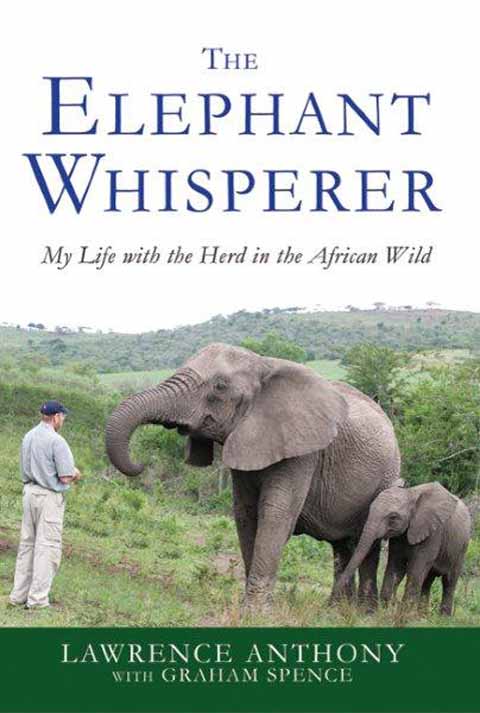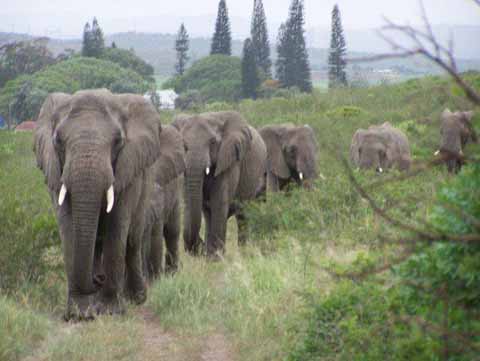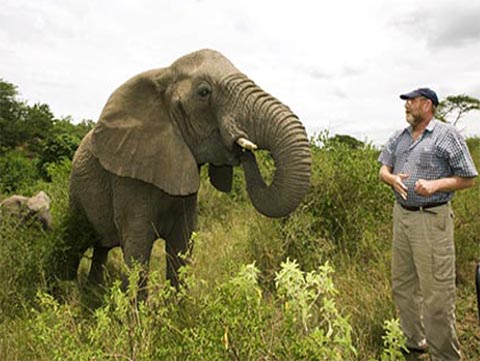(Author’s notes: I found a story in an Alfred Hitchcock book back in my high school—which for me is over 50 years ago. The story and its original author are unknown—even though I have scoured through online anthologies of Hitchcock’s works in order to discern who should get credit for this. It’s a horror story—and perhaps for that reason alone, it has stayed in my memory long enough and with the details that I will try and provide in my own words. It is my hope that someone will recognize it and let me know who wrote it so that I can read it anew. If not…I hope you are as chilled and thrilled as I was 50+ years ago. I have called it by a single name because that is the theme of the story and its background. For this reason, I call it "Pursued".)
Pursued
It was a typical October evening in London that night, and Tompkins sat on his stool inside his kiosk on the street outside the Savoy Hotel. His companion and guide dog, Bobby, a terrier, sat by his feet. Tompkins listened carefully to the sound of cars passing by, of pedestrians chatting, and the steady patter of the rain as it splashed down on the concrete sidewalk. He reflected on his life: lucky that he had a side job to supplement his income along with his military disability pension, and lucky that he had Bobby all these years to help protect him. The gas attack forty years earlier had cost Tompkins his sight, but he was alive—and so many of his trench-mates had died gasping and sputtering for air after the Germans had launched their attack. The British Army was unprepared for that kind of fighting in 1915, and Tompkins, after the bandages from his face were removed, was blind for life.
The kiosk where he sat was filled with magazines, newspapers, cigarettes, candies, and other amenities, and he was warmly greeted by his customers. They had visited him for all these decades outside the Savoy, and its range of high-class patrons often stopped as well to share a kind word with him. Bobby had come to him from one of these generous visitors, and the dog was alert, loyal, and as good a guardian as Tompkins could have wished. “Ah, if only you could count out change for me, my boy, what a bonus that would be!” he would remark, and Bobby would wag his tail and paw at his master for a friendly welcoming hand of appreciation.
The doorman at the Savoy, Richards, had been on the job as long as Tompkins could remember. He was ten years older than Tompkins, but he remembered well the sacrifices made by England’s best during the war—he was a sergeant major himself and a platoon leader. He had seen too many men chewed up by artillery barrages and machine gun bursts, and he considered Tompkins to be something of a younger brother who needed a careful eye to watch over him. As the rainfall lessened, Richards took a brief moment to leave his post as traffic melted to a quiet point, and he greeted his fellow veteran. “Evening, Mr. Tompkins, and how are you feeling tonight? This weather gives my old bones the aches.”
Tompkins smiled at the sound of his visitor’s presence. “Doing fine, Mr. Richards, just a bit slow here, as you can imagine. But I’ve just lit the kettle—can I offer you a cup of tea to warm up? I’m just enjoying the sounds of the evening as much as anything.” Richards gladly accepted the gesture with a thanks and then returned back to the warmth and shelter underneath the awning of the magnificent hotel.
The minutes ticked away…it felt like several hours had passed, and Big Ben’s watchtower boomed in the distance. Eleven o’clock. It was peaceful out, thought Tompkins. And then he heard the sound.
It was unlike anything he had heard in all those years on duty in his kiosk. It was not familiar, but he knew it was coming toward his kiosk from further on down the street. It was a scratching sound—a dragging sound—skrtch-skrtch-skrtch--as though someone was—it was the strangest thought--pulling along a piece of wood with nails sticking out and rasping against the concrete. Bobby heard it too, and his low growl of alarm caused Tompkins to reach down to comfort him and pat his back. “What is it, boy? What’s out there?” Bobby’s low-throated growl was strong as the creator of the sound came alongside the kiosk, then paused for a second. Then whomever—or whatever—was making the noise turned at the corner and faded away into the night.
Richards stopped by the kiosk at noon to buy a pack of cigarettes, and Tompkins remembered the strange sound the previous evening. He queried, “Say there, did you see someone strange dragging something down the street last night about 11:00 p.m.? Bobby went on alert, and I was glad he was there for me.” Richards thought a moment, then shook his head. “No, and I was watching things just in case a late-arriving car might have pulled up. I saw no one.” Tompkins thanked him and chalked it up to coincidence.
At 4:00 p.m. that afternoon, a man’s voice greeted Tompkins and a friendly hand pressed a coin against the kiosk counter for a newspaper. “Thank you, my good man,” said the voice. “Been here long on the job?” Tompkins felt for the money and dropped it into his change drawer. “Thank you, sir, and I’ve been here forty years. Always glad to hear a friendly welcome.”
“I see,” said the customer. “May I ask you for something? It’s not especially difficult, but since you’ve been here all those years, perhaps you could do me a favor. I’d gratefully compensate you for your troubles.” Tompkins just waved back in a polite gesture. “No problem, sir. What can I do for you? That’s quite an honor.”
There was an exhale from the inquirer as though a burden had been carried around by him that had just found a small bit of relief. Tompkins felt a hand grip his own in a firm shake, and the visitor continued, “Thank you. Immensely. Allow me to introduce myself: I am Sir Henry Dawkins, the Egyptologist. Perhaps you’ve heard of my expeditions back in the days. I’m about to register at the Savoy. There’s been a need for me to change hotels rather quickly these days, and the Savoy is my next destination. I’ll be visiting you on a daily basis until—that is, unless matters take a turn. But I have to ask: do you notice, as possible, the foot traffic that passes in front of your kiosk—that is, as you can—during the day and night?”
Tompkins understood immediately. “Well, yes, sir, it’s part of my adjustment all these years since losing my sight. I would say my hearing is as good, if not better, than it was when I was younger. It has to be, you see, so that I know when a customer is nearby.”
Dawkins again exhaled deeply. “Excellent.” He placed a 10-pound note into Tompkins’ hand. “Please accept this as a token of my gratitude for your vigilance. I need your help—but please let me explain. And I beg you: have mercy and understanding that I am making this request.” Tompkins carefully laid the bill in his drawer. “Please, sir, explain. How can a blind kiosk operator be of help?”
Dawkins then laid out the reason for his need: “It was back in ’21, as I recall. We were part of the Carnover expedition; you surely remember how he made the discovery of King Tut’s tomb. I had gone ahead a year earlier on my own. We made our own find of a hidden tomb, but not of the magnitude that Carnover achieved. My discovery was of a lesser-known pharaoh, and certainly with much less rewards and treasures. But during the excavation, my guides were fearful and warned me, much as Carnover was told, about the protector of the tomb and the retribution for disturbing the remains of its master. Naturally, we passed this off as nonsense.”
Tompkins nodded. “Yes, I remember the stir when Carnover made his discovery. Please continue.”
The explorer took yet another deep breath. “We thought nothing of it. After all, the number of items in this previous tomb were not as extravagant. And frankly, there was not the fanfare or acclaim for me that I wanted—but I accepted it. But what I did not expect—what I cannot explain—was the fate of the men who accompanied me. They died a most hideous death in the years to come: as though their bodies were torn apart by someone—dare I say ‘something’—that could not be explained. I thought it was just a peculiar happenstance—and then I heard the sound.”
“Let me tell you, Tompkins, it was a sound that I have heard even as I was not alert for it. It was a sound that has chased me—haunted me—for years. It is a scratching sound—a dragging sound—like someone—or something—dragging nails, or something sharp, on wood and stone. In my travels, I have lain awake at night and silently listened for this sound outside my hotel room door. This is why I am now taking up at the Savoy: last night, I heard it on the hardwood floor at the Ritz Hotel. It was not someone—it was something—that broke down my door and came into my room. I was quick enough to get past whatever it was—I could not see anything distinct at all, not even a shadow—and flee. Now I am here in residence at the Savoy. I urge you, sir, if you hear anything like this noise, please have the doorman notify me at once.”
Tompkins drew up on the stool where he sat. “Why, bless me, I heard a strange sound last night! Even Bobby went on alert! Of course, I couldn’t see anything. But it was the strangest skrtch-skrtch-skrtch I’ve ever heard! As though someone—or as you say, something—was dragging itself along on the street—and whatever was causing that noise was part of its movement!”
Dawkins gasped and let out a low moan of distress. “Oh, Lord, it found me again. Oh no. Oh, please.”
Tompkins shook his head. “I say, m’lord, is there anything I can do?” Sir Henry shook his head. “No, you have been a beacon of warning. Thank you. I may have to change residence in the morning. Please excuse me. I must pack my things again and make preparations. Bless you for your vigilance!” He warmly gripped Tompkins by the hand again and then made his way inside the hotel.
That night, at 11:00, the same sound returned on the street. Tompkins, now on high alert for noises, recognized it. Bobby again went into defensive mode, but the sound did not stop and pause as it as it did the previous evening. Instead…it seemed to change direction…as if it was moving up the carpeted entrance to the Savoy.
Fifteen minutes later, a cacophony of noise erupted from high above in the executive suite floor. To Tompkins’ ears, there was a crash of a breaking window…and then moments later, a thud. A heavy thud, as though something had fallen from a great height—landing adjacent to the kiosk! And then—most strange!—there was the sound of footsteps from the owner who had taken such a great fall. He was running away! And then…it seemed just moments beyond that—the same skrtch-skrtch-skrtch, following slowly after the person who had fled!
The doorman, Richards, burst out of the hotel seconds later. Someone had called for a constable, and the shriek of his whistle blared into the night. Tompkins stood inside his kiosk, trying to make sense of the commotion. An ambulance’s siren shrieked in the distance. Richards, now breathing heavily, directed his attention to Tompkins, who blurted, “Tell me, man, what happened!?” Richards heaved with effort. “It’s Sir Henry. He jumped from his penthouse. Broke through the window and fell.”
Tompkins shook his head. “No, that’s awful! Is he alright? How can that be? I heard him—or I presume it was him—run away after he landed! How is that possible?”
The doorman stared at the blind kiosk owner. “No, sir, he didn’t run away. His body is still there on the pavement. We’ve covered it up—waiting for the ambulance.”
Tompkins gripped the counter of his kiosk. But…he had heard the footsteps. And then…that terrible sound of whomever—whatever it was—that had caused Sir Henry to leap to…his death. But…how had Sir Henry run away? Or…had he?
The answer—the horrible, frightful answer suddenly flashed in his mind. Sir Henry had died there from the impact. But his soul—it had fled in terror from whatever vengeance was ready to enact the penalty for what had taken place on that fateful day in Egypt in 1921. Whatever the presence was, it was ready to fulfill payment for violating the tomb of its master. Sir Henry was being pursued beyond the grave.





















